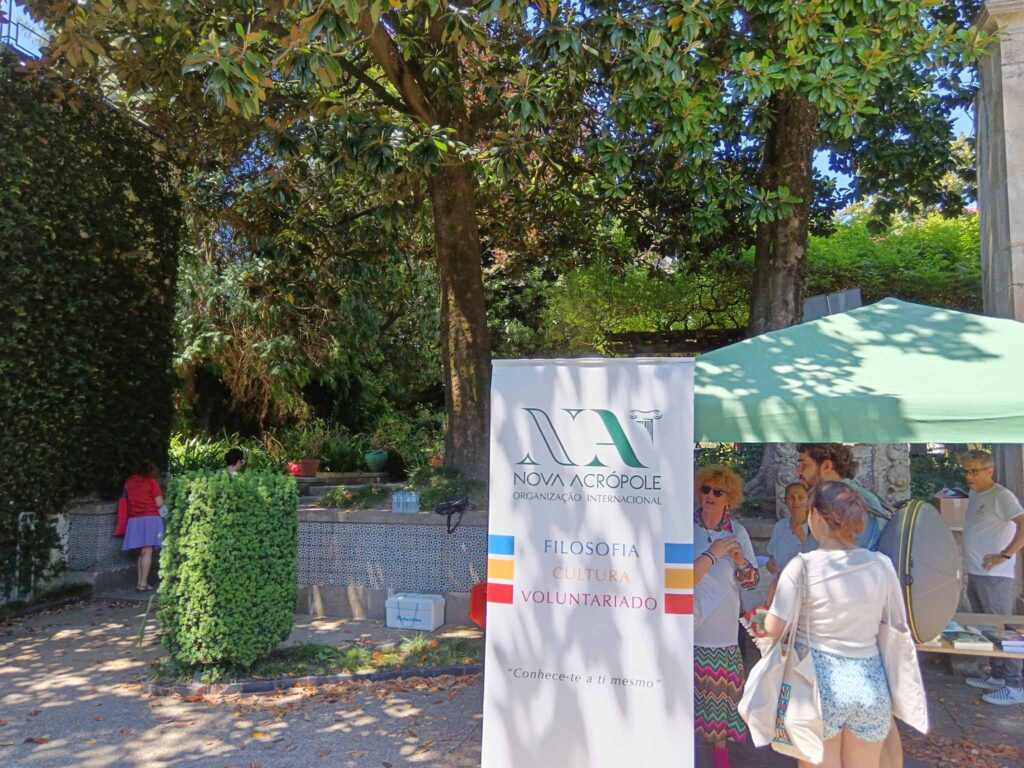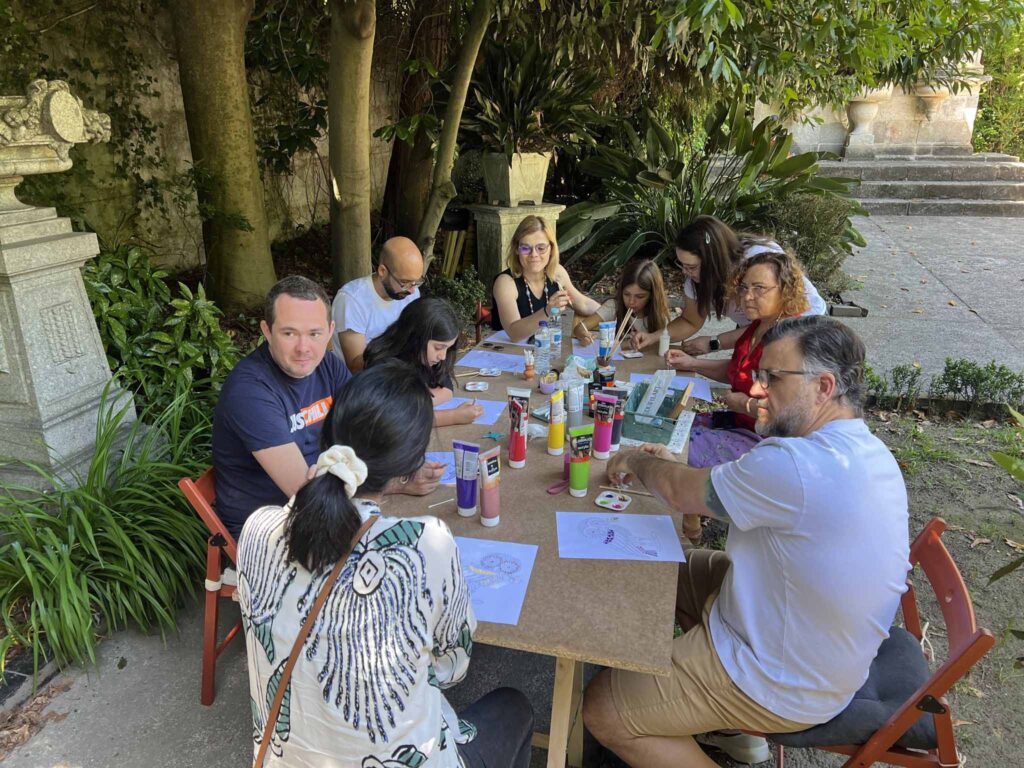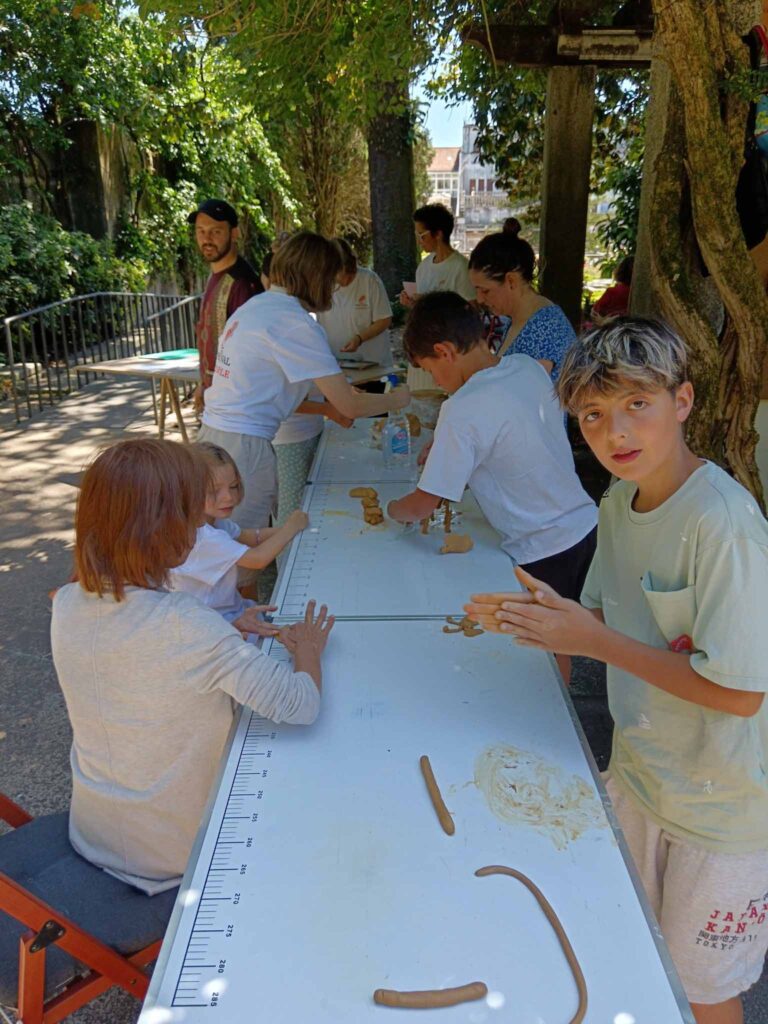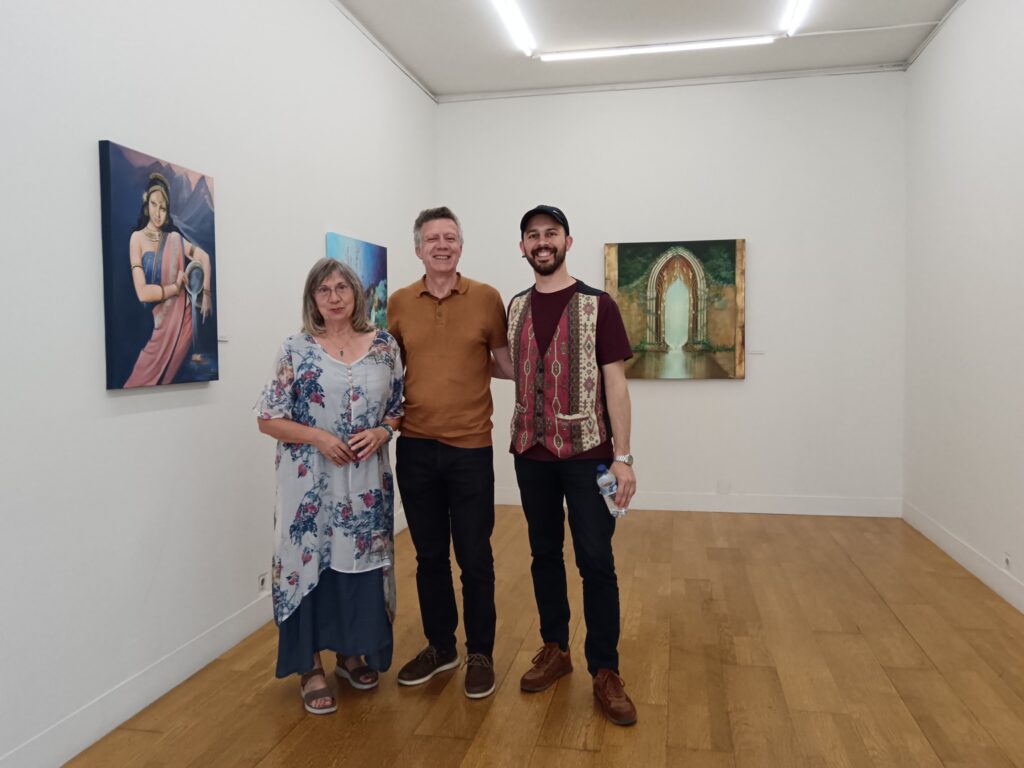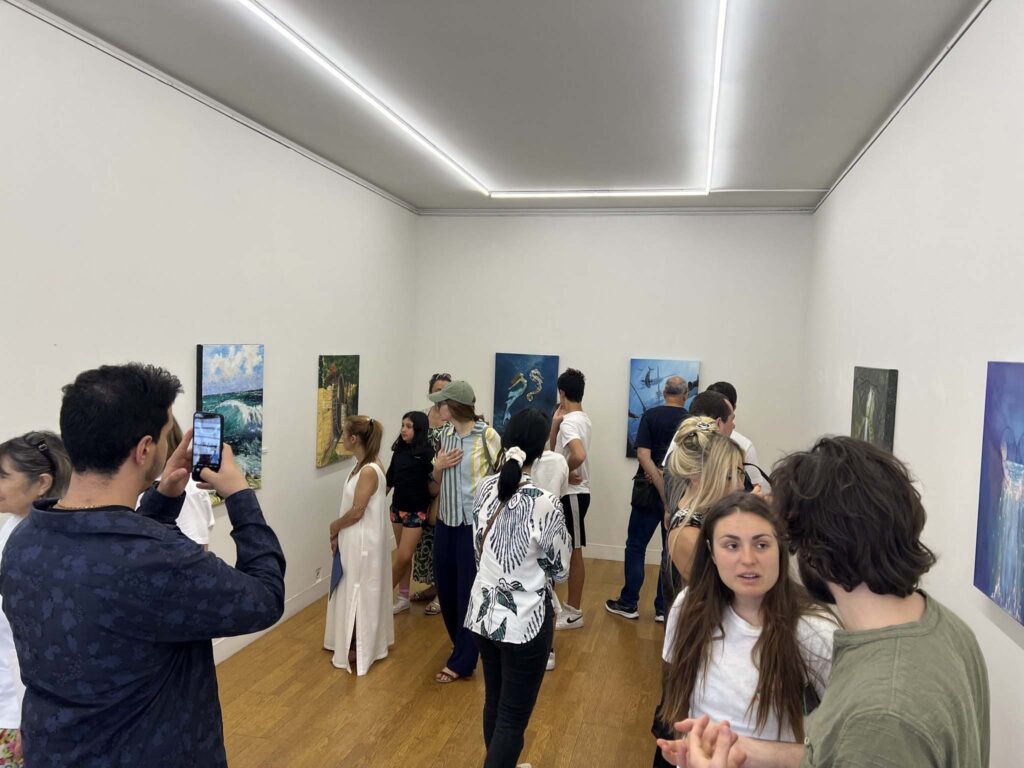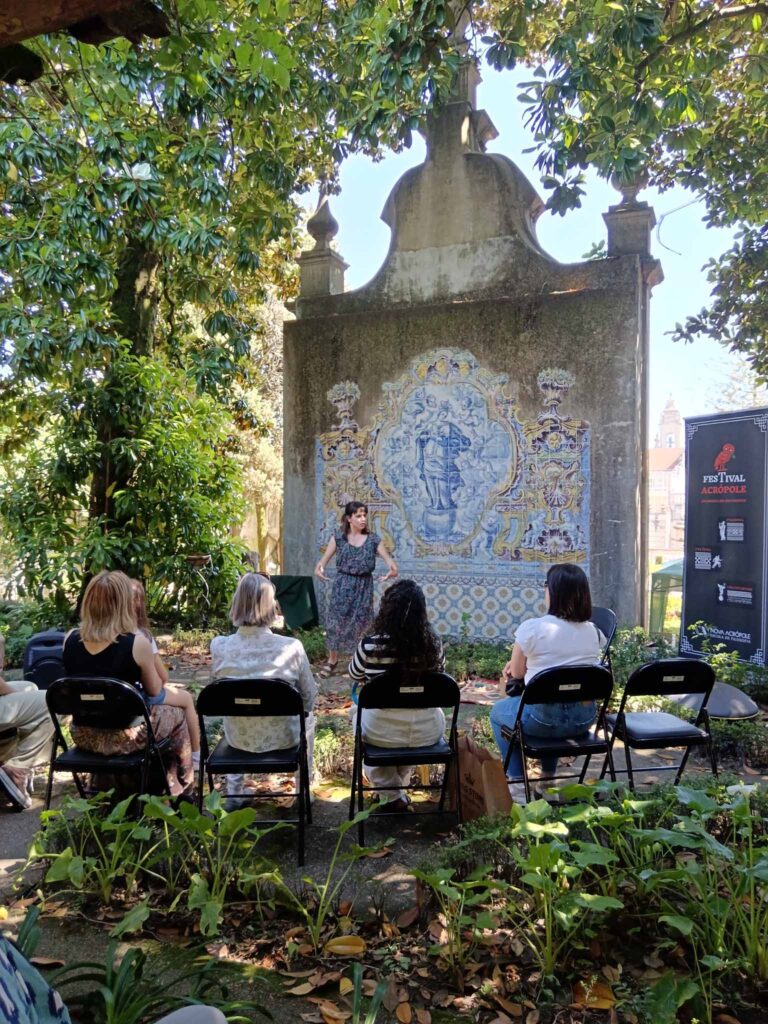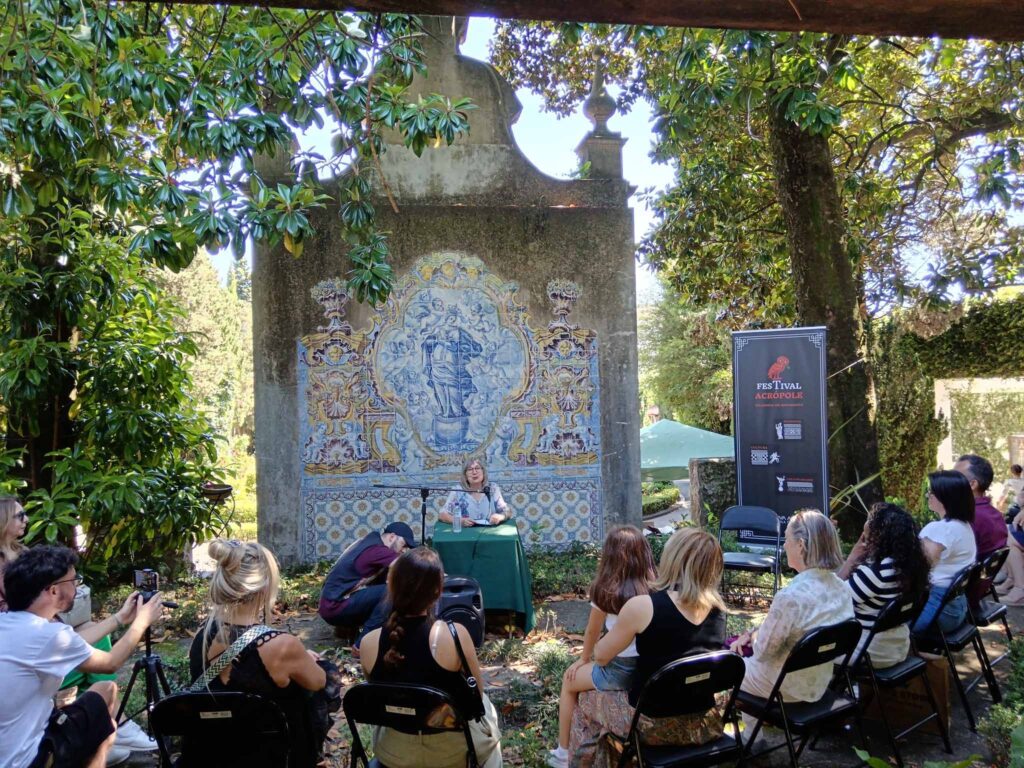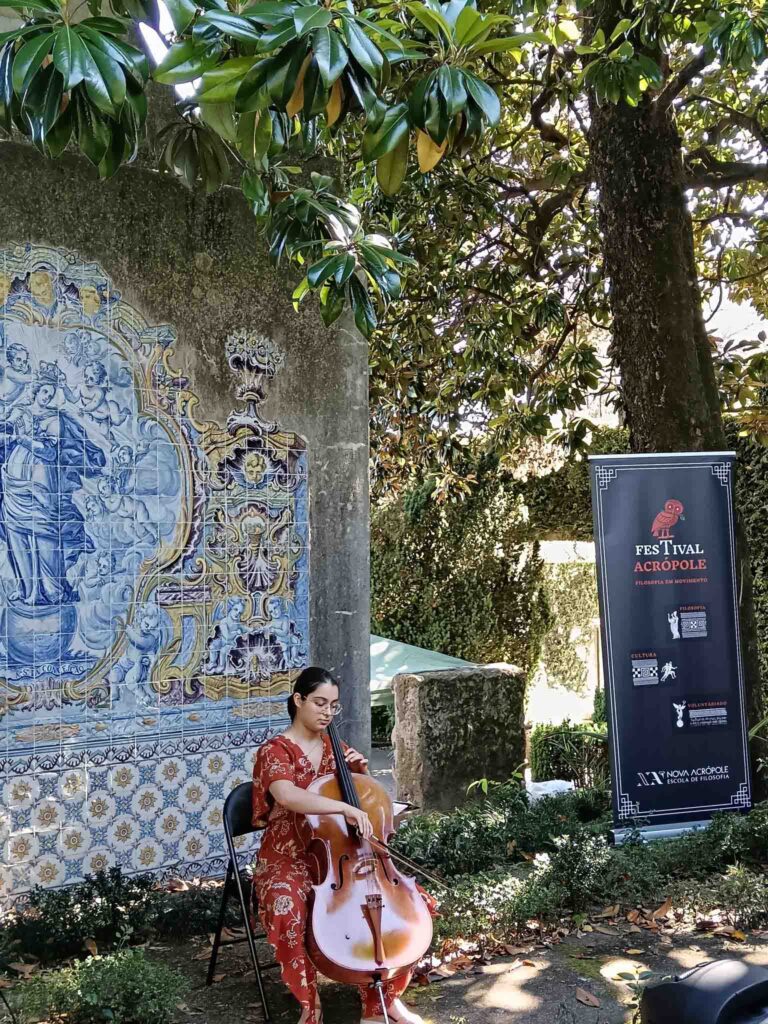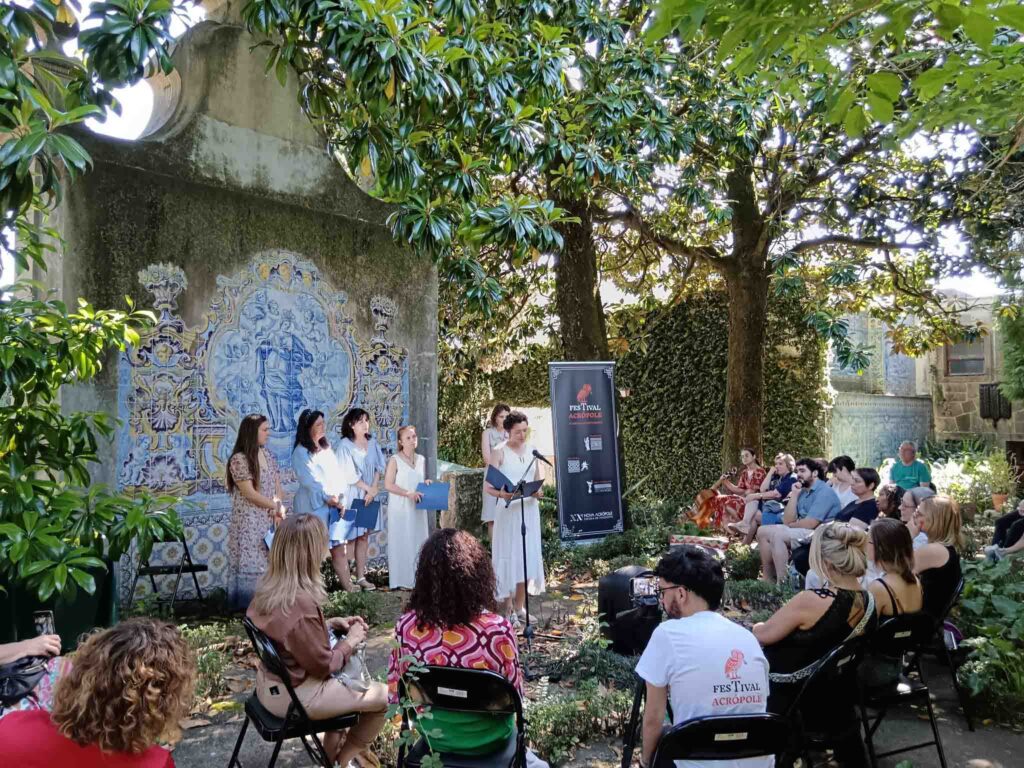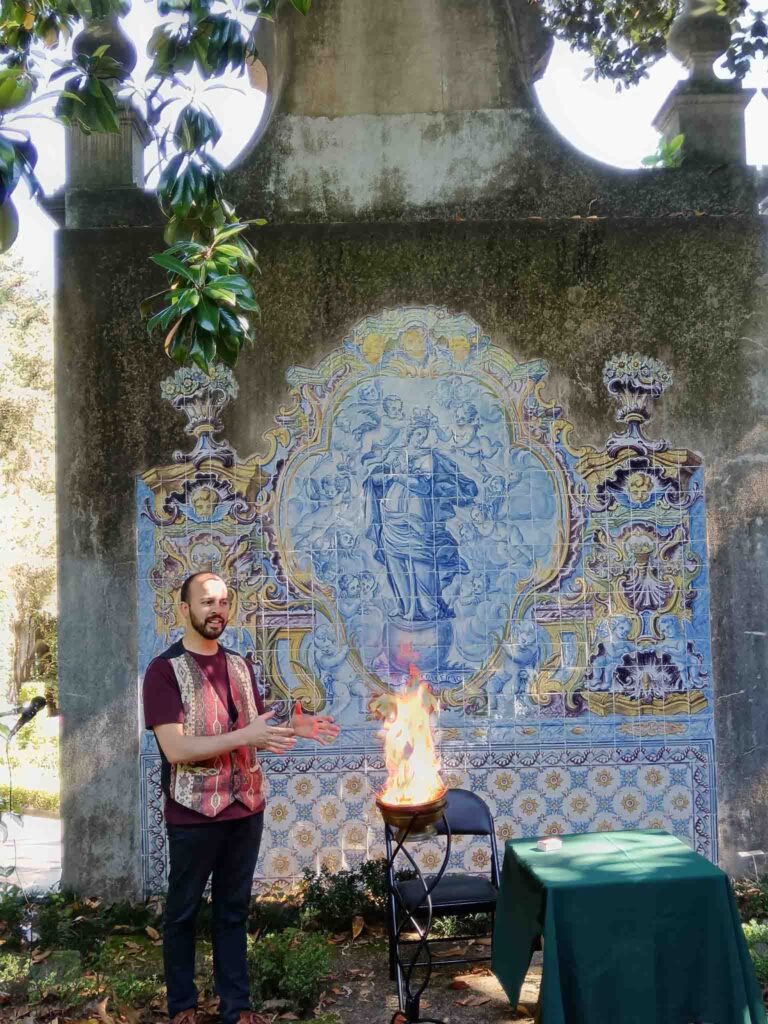Festival (Portugal, Braga)
The Braga Acropolis Festival returned to the Nogueira da Silva Museum with another day dedicated to art, movement, reflection and contemplation. Through the Four Elements (Earth, Water, Air and Fire) there was a journey through different artistic expressions, with poetic interventions, painting, oratory, music, …
The activities carried out on this day were as follows:
9:00 -11:00 h – Ecological walk: Living without smoke – Learning to breathe. It was a walk on the occasion of ‘World No Tobacco Day’, during which we picked up rubbish from the ground and did exercises to learn to breathe, both literally and symbolically.
14:00 h – THE EARTH ELEMENT. Artistic workshops for young and old, such as modelling clay, painting, drawing and writing, to the sound of an organ, were held in the museum gardens.
15:30 h – THE ELEMENT WATER. There was an exhibition of paintings entitled: ‘The Thousand Reflections of Water’, by the painting studio of Françoise Terseur, complemented by the recitation of Jorge Ángel Livraga’s work, ‘Once upon a time there was a river’, by Sara Saiago. And finally, the conference entitled: ‘The Mysteries of the Ocean’, by Françoise Terseur.
16:30 h – THE AIR ELEMENT. A piece of music for cello by Catarina Coelho, entitled: ‘El Canto de los Pájaros’ (The Song of the Birds). It is a traditional Catalan song, which portrays a dialogue between different species of birds. Its composer is unknown, as is the date of the work. Pau Casals composed an arrangement of this song for cello in 1939. This element continued with a poetry recital by the group Calíope, entitled ‘Towards a Horizon of Poetry’, which invited us on a journey through different states of the human soul, such as sweet melancholy, burning passion, contagious joy and renewing hope, with verses that touched the heart and the mind.
5:30 p.m. – THE ELEMENT FIRE. This was dealt with in the conference: ‘The Philosophical and Spiritual Symbolism of Fire’, given by Henrique Cachetas, where the symbolism of fire, which needs air, without which it would be impossible for it to express itself, was explored in depth. It rests on the earth and consumes it when it touches it. It dries and makes water evaporate. It transforms everything it touches by releasing its energy. Fire needs only a point of support at its base and, from there, all its movements are vertical, an eternal dance with aspirations of height, the most complete simile of human spirituality that seeks its God above, relying only on the body it has to express itself.

